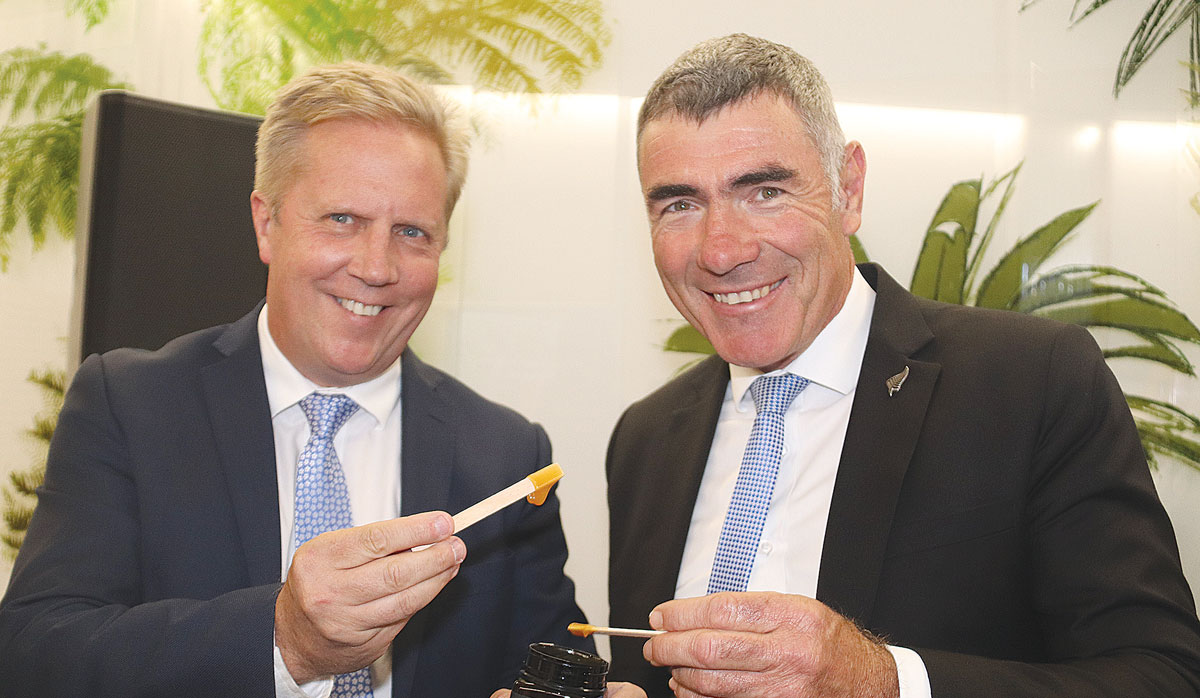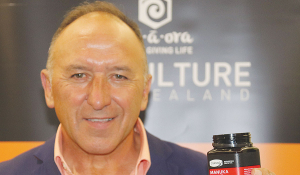While confident that the apiculture sector can meet its target of doubling honey exports by 2030, chair of ApicultureNZ, Nathan Guy, says it will be challenging.
He says it will need the full support of the industry and some help from government. Guy says the just launched strategy has an aspirational aspect to it, but if they can get the right policy settings from government, including improved quality trade access, it will be achievable.
The strategy document notes that NZ is recognised worldwide as a global leader int the production of high quality honey and the only credible source of manuka honey. This is despite the fact that the Australians claim they are.
The strategy has three pillars: First, sustainability - meaning a call for the industry to commit to working as one, the aim being to grow, while still recognising issues such as climate change, the need for more research, alignment on risk management and enhancing the environment. The other two pillars relate to maintaining high quality standards and focusing on consumer needs.
The strategy acknowledges the somewhat rocky road the industry has gone down in recent years with accelerated growth since 2008, which saw exports rise to $350 million in 2019.
But while production rose, markets dried up for non-manuka honey and to this day there are still significant quanitities of unsold honey stored in sheds around the country.
Despite the challenges, ApicultureNZ is confident that there is a positive path forward, saying the honey sector is extremely well placed to take advantage of an anticipated growth in global demand - especially in manuka honey. It says consumers are turning to products that are natural and good for their health - manuka honey fits this bill.
Guy believes that as well as being aspirational, the new strategy is practical and has the support of exporters and processors, plus a reasonable number of, but not all, beekeepers.
He says this is not a strategy that everyone is going to sign up to and some beekeepers are worried this will mean extra costs. Guy acknowledges many beekeepers were badly hit by Cyclone Gabrielle because it washed out access tracks to hives and they were unable to attend to these to feed the bees.
 |
|---|
|
Agriculture Minister Todd McClay and chair of ApicultureNZ Nathan Guy were the main speakers at the event.
|
"But doing nothing is not an option and the sector will continue to go backwards unless we do something now."
Guy says getting honey to the point where it's a billion dollar industry is achievable but it will take some commitment - especially around biosecurity. He says if there is one thing that could seriously affect the industry it is varroa mite, which he describes as a ticking time bomb.
"At the moment it's not part of the pest management plan like American fowl brood (AFB) and so there is no real coordination or great understanding of varroa. We need to bring that in as part of the pest management plan and educating people about the potential problem," he says.
Overall, Guy sees manuka honey as the poster child of the apiculture sector and hopes that one day it might be the next wine industry. He says having the Manuka Charitable Trust working with the industry is invaluable, pragmatic and will contribute to the success of the strategy.
Maori and Manuka
Pita Tipene, chair of the Manuka Charitable Trust, whose role it is to preserve the mana of manuka, says there has been a major resurgence and recognition of the value of manuka.
He notes that the Ngāti Hine Forestry Trust has planted 400 hectares of manuka over the last few years.
"Put it this way, our Ngāti Hine Forestry Trust has a strategy to move from pinus radiata back to native cover with manuka as the nursery crop. We know that manuka has a commercial return in terms of its honey, oil, and other derivatives related to medicine," he says.
Tipene says a major challenge is the Australians who claim that manuka is native to their country, which is not true. "They will do anything those Australians," he adds.
Meanwhile Agriculture Minister Todd McClay says in Asia manuka honey is known and cherished because of its well-known health attributes.
He says it is a product that New Zealanders should be very proud of and promote. McClay says manuka honey is the result of much work by people who have researched and developed the product to the standard it is today.
McClay believes the challenge of the new strategy is to make sure that there is something for everyone - beekeepers, processors, and exporters - so that all get a good return.




















